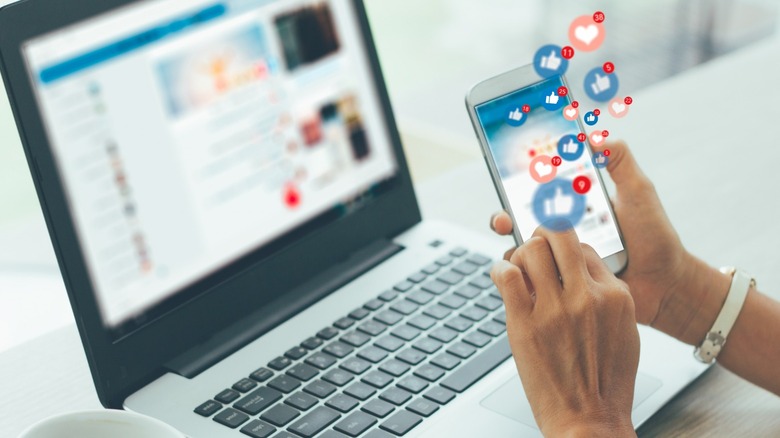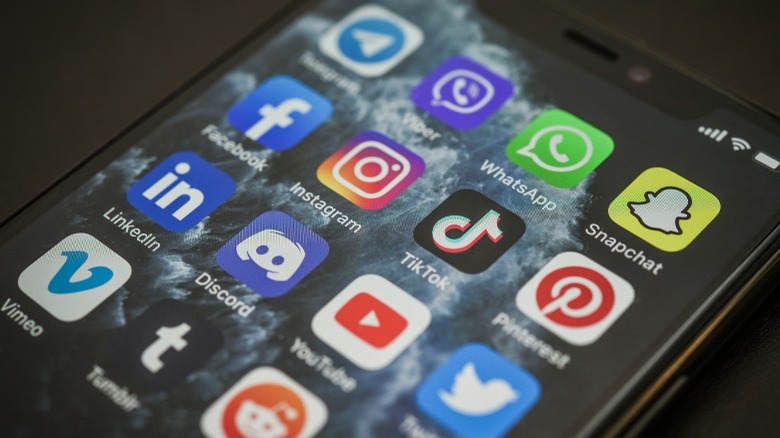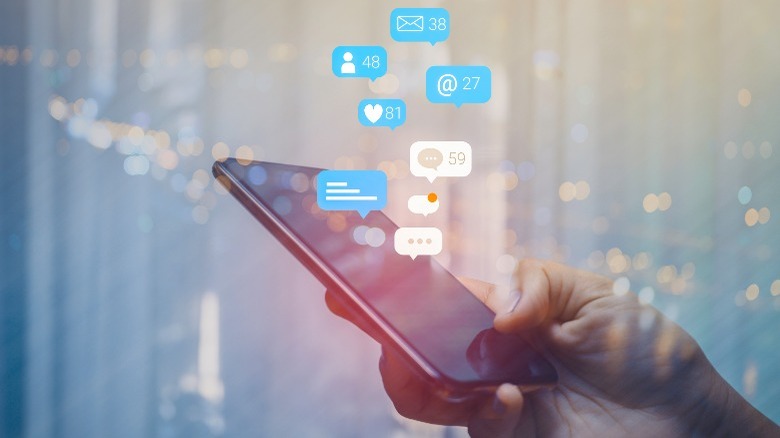This Is Why It's So Hard To Quit Social Media
Without a doubt, social media has changed our world forever. Thanks to Facebook, we can keep in contact with our relatives in faraway lands. Because of Instagram, we can start an online business needing not much more than our wits and the tips of our fingers. Still, what started as a way to effortlessly connect with people has now turned into something else for many.
For instance, have you ever found yourself scrolling aimlessly on Instagram only to look up at the clock and realize that two hours have flown by? Have you refreshed your Twitter feed over and over again, even though you know there's nothing new to see? If you answered yes to either of these questions, you might be one of millions of people who are addicted to social media. And when we say millions, we mean millions — the actual number of those who are addicted to social media and the internet worldwide stands at around 210 million people, according to True List.
Even though that's technically a fraction of the 3.78 billion people who use social media around the world, it's certainly not a small number (per Statista). In fact, according to studies, social media is both physically and psychologically addictive, and the side effects to your physical and mental health can be quite serious, via Healthline. But what exactly is it about social media that makes it so difficult to put it down?
Social media utilizes a variable-reward system
While there is no official diagnosis for social media addiction, that doesn't mean it isn't still addictive, according to Healthline. In fact, social media comprises numerous behavioral addiction properties, and psychologists estimate that as many as 5 to 10% of Americans meet the criteria for social media addiction, per Addiction Center. And like all other addictions, social media platforms utilize a variable-reward system (via California State University).
Basically, this system works by rewarding someone when they do something specific, but not every single time (so you never actually know when the reward will come next). In the specific case of social media, whenever you receive a like or a notification, your brain's reward system gets activated (in the same way that a drug addict's brain might), according to California State University.
"We have observed that the reward system [in the brain] is more active and more sensitive in people who present symptoms of addiction to social media," Ofir Turel, Ph.D., associate professor of information systems and decision sciences at the College of Business and Economics at California State University, Fullerton told CalState. "What it means is that social media provides rewarding experiences that generate dopamine in the brain, the same substance produced when we eat cake or have sex. Over time, it trains your brain to want to check social media more and more often."
A digital detox can help counter social media addiction
So how can you tell how much social media usage is too much? There are a few tell-tale signs according to Addiction Center. For starters, does social media make you feel instantly elated when you use it, but anxious when you're not using it? Are you constantly checking, or thinking about checking your social media pages, feeds, or posts? Do you find yourself using social media more over time (you can check this by going to your phone's screen time activity in settings)? Does social media affect other parts of your life (i.e., does it cause conflict in your relationships with your partner or friends)? Lastly, do you feel a sense of withdrawal whenever you take some time off from using social media?
If you answered yes to three or more of those questions, you might be addicted to using social media. If you're concerned about this, you can perform a "digital detox" on yourself, which consists of reducing the time you spend on social media. You can try a few simple steps such as turning off your notifications or allowing yourself only an allotted amount of time to use it each day. You can also impose restrictions on using social media during meals or when you're spending time with people. These steps will allow you to focus on the present physical reality in front of you and will reduce your brain's dependency on social media, via Addiction Center.


